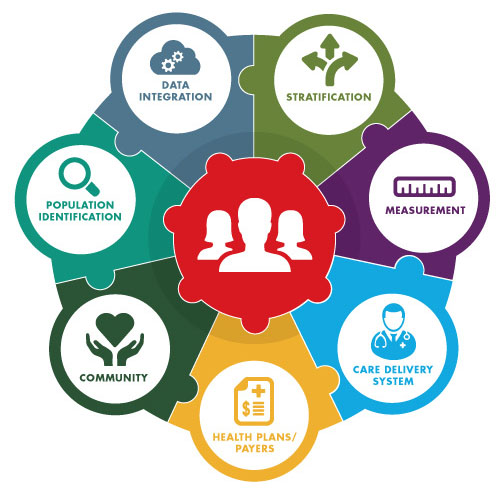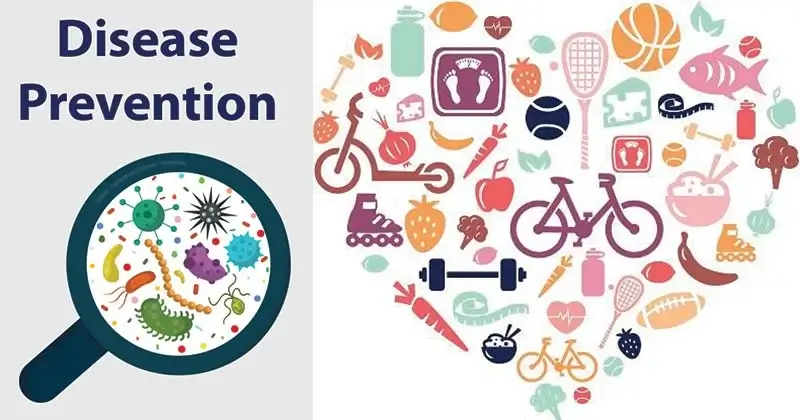When it comes to maintaining optimal health, understanding and managing common diseases play a crucial role. These diseases not only affect individuals but also impact public health on a larger scale. By delving into the prevalence, risk factors, and management strategies of diseases like diabetes, heart disease, and cancer, individuals can make informed decisions about their health and take proactive steps towards a healthier lifestyle.
Understanding Common Diseases
Common diseases such as diabetes, heart disease, and cancer are prevalent in today's society, affecting millions of individuals worldwide. Diabetes, for example, is a chronic condition characterized by high blood sugar levels, resulting from the body's inability to produce or effectively use insulin. Heart disease, on the other hand, encompasses a range of conditions that affect the heart, including coronary artery disease, heart failure, and arrhythmias. Cancer is a complex group of diseases characterized by the uncontrolled growth and spread of abnormal cells.
The risk factors associated with these diseases vary but often include lifestyle habits such as poor diet, lack of exercise, smoking, and excessive alcohol consumption. Genetics can also play a role in predisposing individuals to certain diseases. Understanding these risk factors can help individuals make informed choices about their health and take steps to mitigate their risk.
According to the World Health Organization (WHO), non-communicable diseases such as diabetes, heart disease, and cancer are the leading causes of death globally, contributing to over 70% of all deaths. These staggering statistics highlight the urgent need for individuals to educate themselves about common diseases and take appropriate measures to prevent and manage them.
Benefits of Understanding Common Diseases
By understanding common diseases, individuals can empower themselves to take control of their health and well-being. Early detection and treatment are essential in managing diseases such as diabetes, heart disease, and cancer. Regular screenings and check-ups can help detect these conditions in their early stages when they are most treatable.
Furthermore, lifestyle changes play a significant role in preventing common diseases. Adopting a healthy diet, engaging in regular physical activity, quitting smoking, and limiting alcohol consumption can all contribute to reducing the risk of developing these conditions. Education about the impact of lifestyle choices on health outcomes is key to making positive changes and improving overall well-being.
Moreover, understanding common diseases can also lead to increased awareness about the importance of disease management. By educating themselves about their condition and working closely with healthcare professionals, individuals can create personalized treatment plans that address their unique needs and preferences.
Managing Common Diseases
Managing common diseases involves a multi-faceted approach that includes medication, lifestyle modifications, and regular monitoring. For individuals with diabetes, monitoring blood sugar levels, taking medications as prescribed, and following a healthy meal plan are essential components of disease management. Similarly, individuals with heart disease may need to take medications to control blood pressure and cholesterol levels, as well as make dietary and exercise changes to improve heart health.
For patients with cancer, treatment options may include surgery, chemotherapy, radiation therapy, or a combination of these modalities. Managing the side effects of treatment, maintaining a healthy lifestyle, and staying connected with a supportive network can all contribute to a successful outcome in cancer management.
It is important for individuals with common diseases to work closely with their healthcare providers to develop a comprehensive care plan that addresses their physical, emotional, and psychological needs. Regular follow-ups and check-ins can help monitor progress and make adjustments to treatment plans as needed.

Resources for Managing Common Diseases
There are a variety of resources available to individuals looking to learn more about managing common diseases. Reputable websites such as the Centers for Disease Control and Prevention (CDC), the American Diabetes Association, the American Heart Association, and the American Cancer Society offer valuable information and support for individuals with these conditions.
Additionally, books, articles, and online forums can provide insights into disease management strategies and personal stories of individuals who have successfully navigated their health challenges. Seeking out local support groups and counseling services can also be beneficial in coping with the emotional and psychological aspects of living with a chronic condition.
By taking advantage of these resources and staying informed about the latest developments in disease management, individuals can improve their health outcomes and enhance their quality of life. Education, empowerment, and support are key elements in successfully managing common diseases and achieving optimal well-being.
Conclusion
In conclusion, understanding and managing common diseases are essential components of maintaining good health and well-being. By educating themselves about the prevalence, risk factors, and management strategies of diseases such as diabetes, heart disease, and cancer, individuals can take proactive steps towards prevention and early detection. Lifestyle changes, regular screenings, and collaboration with healthcare professionals are critical in managing these conditions effectively.
It is important for individuals to prioritize their health and make informed decisions about disease management. By utilizing resources, seeking support, and staying committed to a healthy lifestyle, individuals can improve their overall health outcomes and lead fulfilling lives. Remember, knowledge is power when it comes to navigating the challenges of common diseases and promoting optimal well-being.

Also read:- My Journey Through Hypertension, Diabetes, Cancer, and Respiratory Illnesses: A Personal Experience
Additional Resources
For further information on managing common diseases, consider exploring the following resources:
- Centers for Disease Control and Prevention (CDC) - www.cdc.gov
- American Diabetes Association - www.diabetes.org
- American Heart Association - www.heart.org
- American Cancer Society - www.cancer.org
For additional support and guidance, consider reaching out to healthcare professionals specializing in disease management or joining local support groups dedicated to specific conditions. Remember, you are not alone in your journey towards better health, and there are resources available to assist you every step of the way. Stay informed, stay empowered, and prioritize your health above all else.
FAQs
Q: What are some common diseases that individuals should be aware of?
A: Common diseases such as diabetes, heart disease, and cancer are prevalent and can have a significant impact on health and well-being.
Q: What are the risk factors associated with common diseases?
A: Risk factors for common diseases include poor diet, lack of exercise, smoking, excessive alcohol consumption, and genetic predisposition.
Q: Why is it important to understand and manage common diseases?
A: Understanding and managing common diseases can lead to better health outcomes, early detection, and effective treatment strategies.
Q: How can individuals empower themselves to take control of their health in relation to common diseases?
A: Empowering oneself involves education, lifestyle changes, regular screenings, and working closely with healthcare professionals to create personalized care plans.
Q: What are some resources available for individuals looking to manage common diseases?
A: Reputable organizations such as the CDC, American Diabetes Association, American Heart Association, and American Cancer Society offer valuable information and support.



0 Comments